1. Big Steps for early educators
Any childcare worker can tell you their job is more than just playing and wiping noses. And any working parent can tell you how much these workers are integral to our economy.
Early childhood educator worker Kirstie Fildes called for a wage that recognized the complexity of her work as part of the Big Steps campaign in 2018.
“They don’t see the programming, all the studying, the knowledge of education theories,” she told The Guardian.
“A lot of educators are struggling, paying for their professional development out of their pockets. We’re putting in these hard yards sometimes at the cost of our own children,” she said.
At the time, educators like Kirstie were being paid as little as $21 an hour – half the national wage.
The Government’s refusal to properly value her work was one of the reasons why she and other union members walked off the job in March 2018.
Another Big Steps walk off took place six months later and saw an unprecedented 7000 educators take to the streets to demand equal pay.
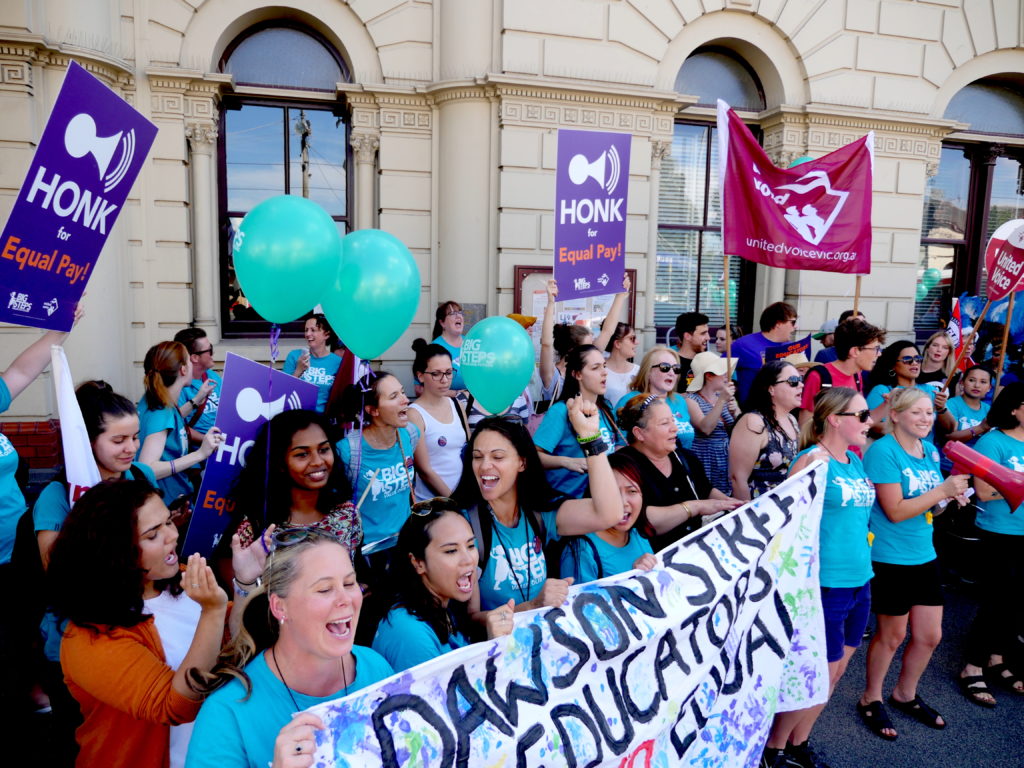
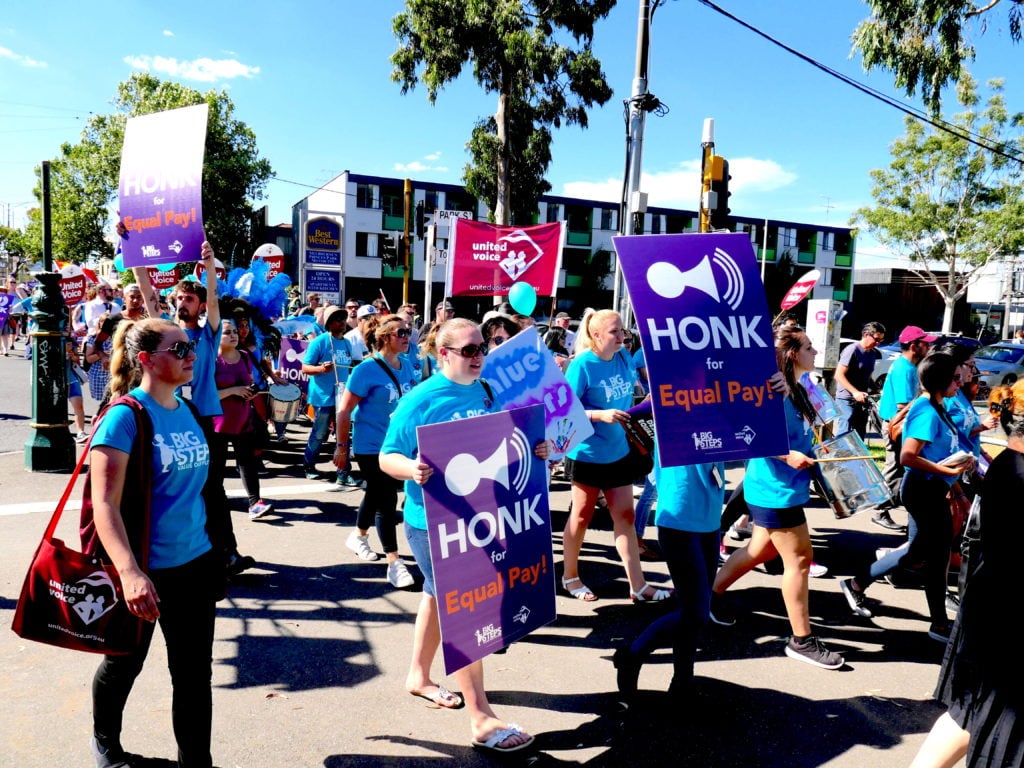
The Big Steps campaign had been pressing the Coalition Government to fund wage increases in early education for almost a decade before the walk offs.
Because unionised childhood educators have used their collective force to push for better pay and conditions, the campaign has achieved some incredible wins.
The Morrison Government has shown no improvement in its treatment of childcare workers and so the work continues.
Now part of the United Workers Union, the Big Steps campaign continues to push for meaningful improvements in early education.
2. The 1998 Waterfront Dispute
When dockworkers turned up to work for Patrick Corporation in 1998, they were met with guards in balaclavas. The company had locked out their entire unionised workforce and replaced them with secretly trained non-union employees.
With the support of the Howard Government, the Patrick Corporation was determined to push the Maritime Union of Australia off the docks.
Workers sticking up for one another was the strength of the MUA. Refusing to waver, union members and their supporters linked arms and maintained around-the-clock community picket lines and pursued legal action.
With public opinion on their side and a favourable court decision behind them, MUA members were able to return to work.
Members from other unions joined the lines and workers chipped in their dollars to keep the momentum going. At the end of the day, the solidarity of these workers couldn’t be broken.
3. Winning back stolen wages during a pandemic
Workers in universities across the country were already walking a tightrope before the pandemic hit.
The National Tertiary Education Union had long been advocating against massive funding slashes to higher education from Coalition Governments.
Government cuts combined with universities increasingly adopting business-like models meant academic staff were left teetering on the edge of unreliable work and exploitation.
NTEU National President Dr Alison Barnes wrote, “If you are an undergraduate student in Australia today you have a greater than 50% chance that the person teaching you in any given unit has no secure job, no office to work from, has to work when they are sick and does not know if they are going to be employed in the next semester.”
That was in 2019. When Australia was plunged into lockdowns in 2020, the Morrison Government kept academic staff locked out of JobKeeper.
Yet none of this prevented NTEU members from sticking up for their and their colleagues’ rights and fair treatment.
At least 1500 academic staff at the University of Melbourne were repaid millions after years of wage theft, thanks to union members campaigning against dodgy practices.
Repayments to casual staff who had been robbed of their wages were as high as $25,000 at Monash University.
Union members found that it wasn’t just academic staff affected – even library staff had seen their penalty rates slashed in 2021.
The NTEU uncovered similar cases in at least half a dozen universities and has recovered $29 million in backpay for casual workers to date.
The pandemic clearly has done nothing to slow down the determination of union members to make sure all their fellow workers – no matter at which university they work – are protected against exploitation.
4. 700 days and counting
When 200 maintenance workers were offered a new contract with Esso’s subcontractor UGL that would see their wages slashed between 30 and 50%, cuts in leave and entitlement, and anti-family shift rosters, they refused to sign.
What resulted was one of the longest protests in Australian modern history.
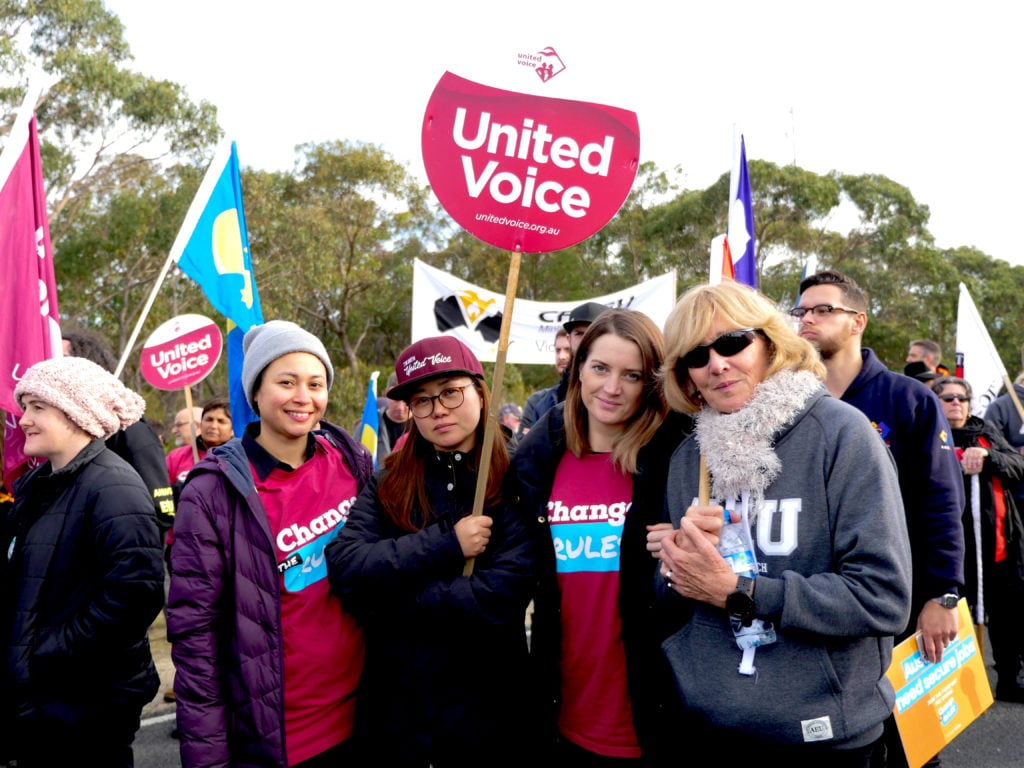
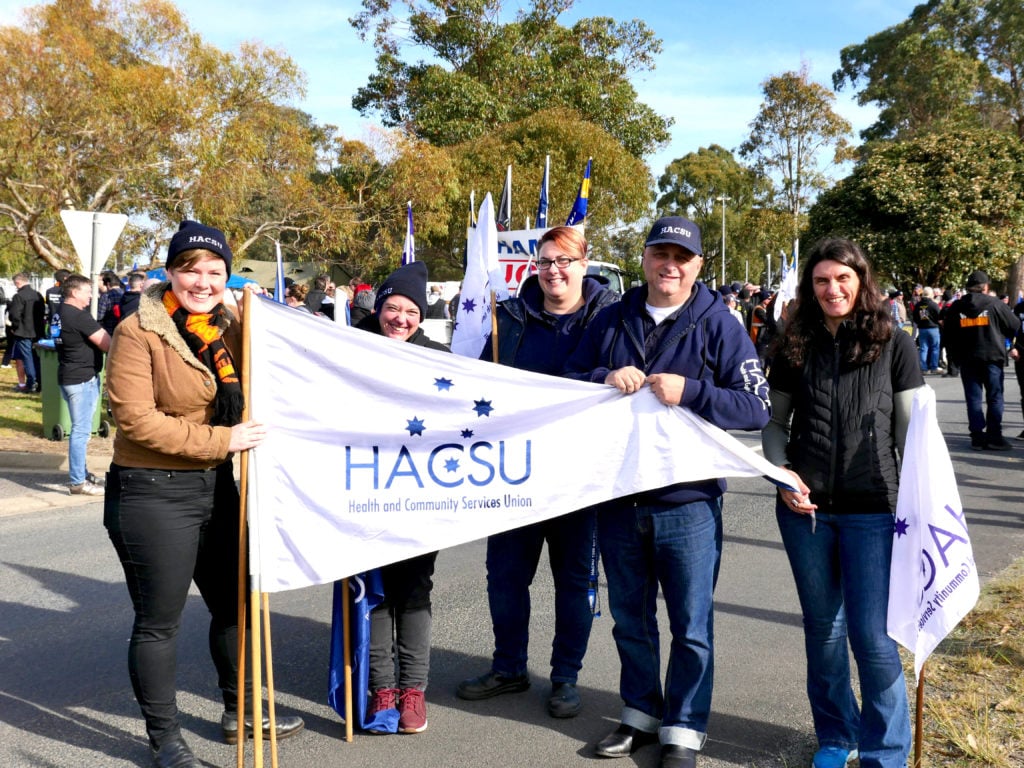
Members of the Australian Workers Union, Australian Manufacturing Workers Union and the Electricians Union began the protest at Langford in Victoria’s east with a few fire pits and some tents.
The protest quickly grew into a camp with a kitchen, shopping container accommodation and painted union murals.
A year later – with the picket line still holding strong – hundreds of union supporters and family members rallied at the site to show their support.

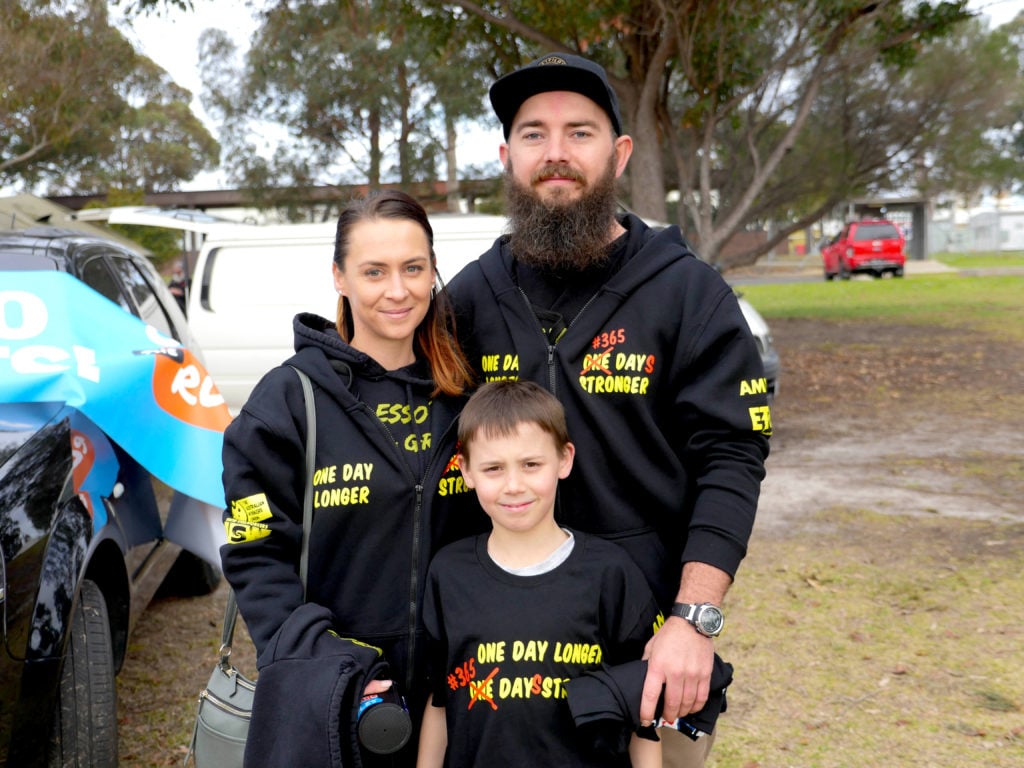
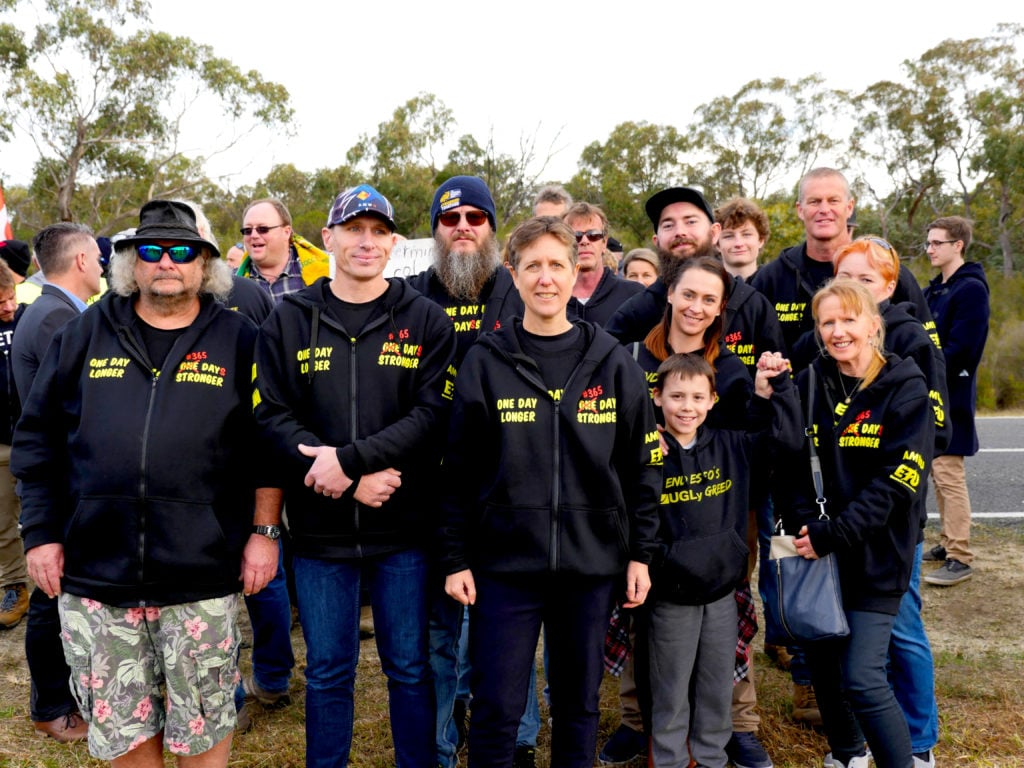
Vanessa Britton, wife of one of the former maintenance workers, captured the union spirit when she said, “We are people just fighting for the cause, our back against the wall.”
“It brought a tear to my eye, I was just watching everyone coming over the hill in solidarity,” she said.
After 742 days of workers refusing to give in, the dispute ended with a union-backed deal. Union members proving their dedication 24 hours a day for two years had paid off.
Exxonmobil – the parent company of Esso – was also exposed for tax avoidance at a Senate hearing. The Coalition Government had only re-opened the enquiry after heavy union pressure.
The company had paid no tax since 2013 despite having made billions of dollars off the backs of Australian workers.
Taking on one of the biggest companies in the world and coming out on top? That’s the power of your union.
Your union is here to stay
It’s just what union members do – we show up for workers and ensure no one is left behind.
Whether you’re starting your first job, changing career, or getting ready to retire, as workers, we’re all in this together.
Australian union members come from all walks of life, and we’re here to support each other on that journey, no matter what stage you’re at.



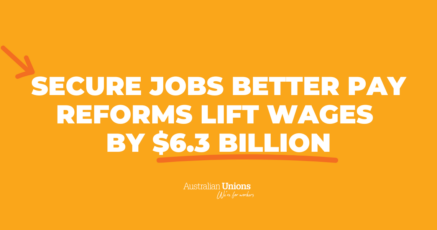
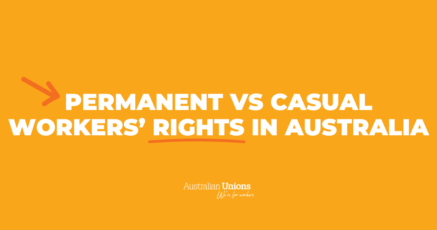


SHARE:
4 times union members stood up for their workmates and won better workplaces